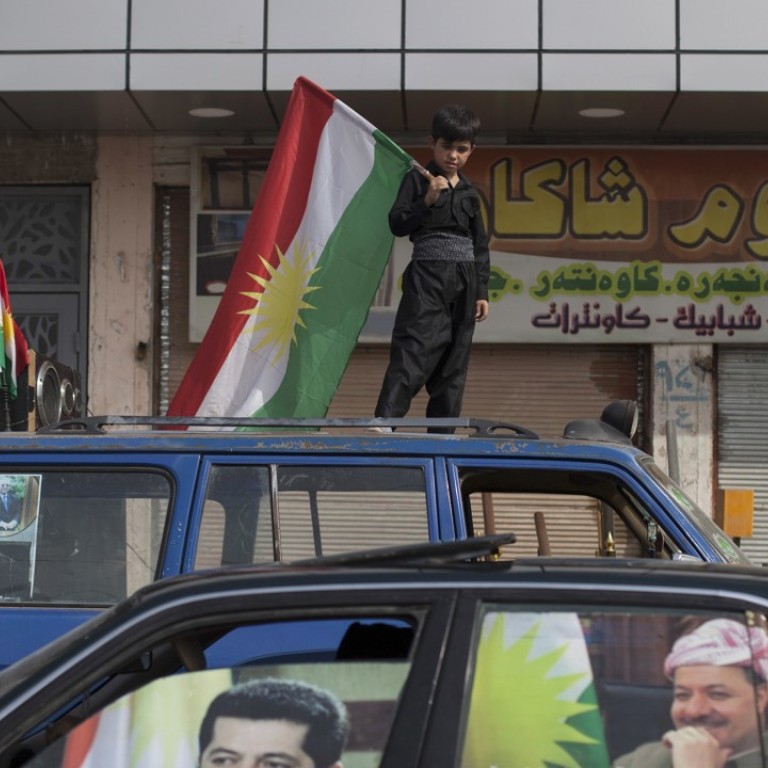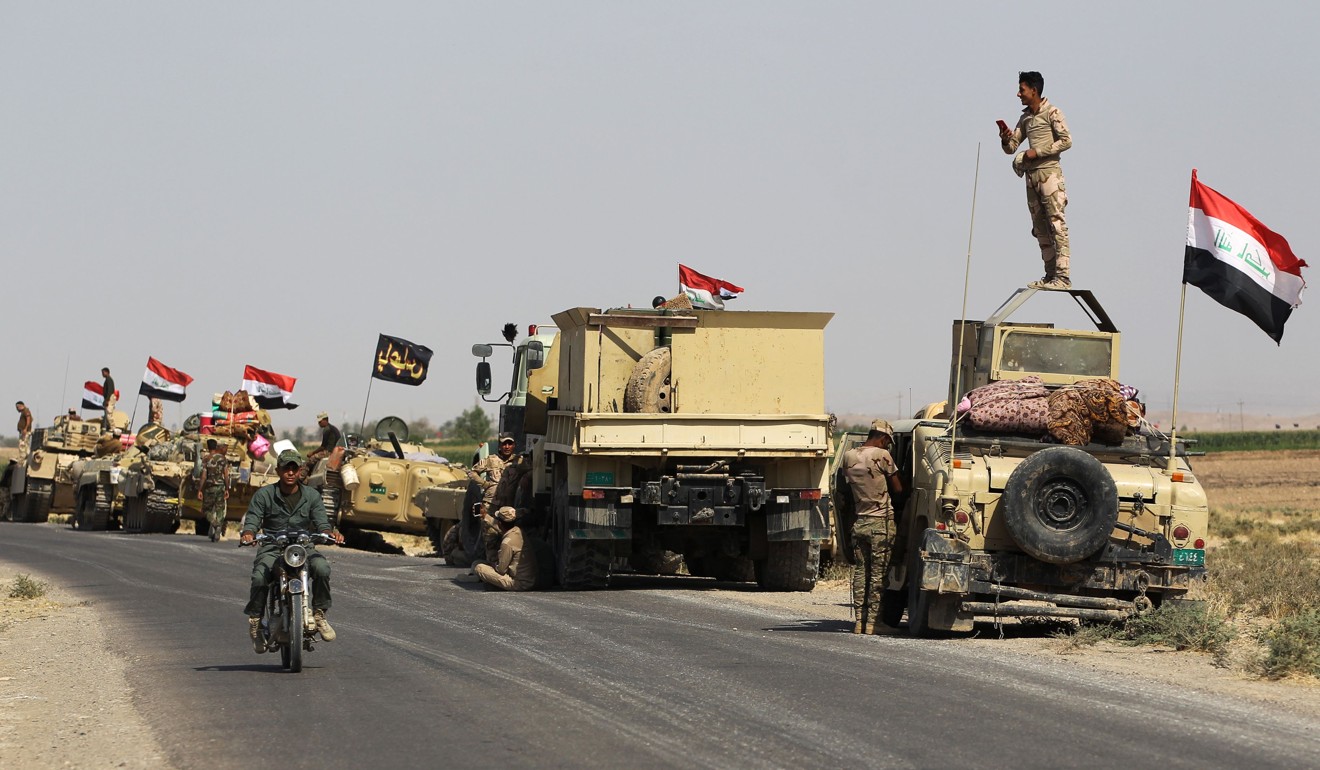
Oil and independence: the disputed territory at heart of the Iraq-Kurd crisis
The region is home to 5.5 million people and became autonomous after the 1991 Gulf war over Kuwait, as Western powers intervened to protect the Kurds against an onslaught Saddam Hussein’s forces
The crisis between Iraq’s central government and the autonomous Kurdish region is rooted in a long-standing dispute over territory stretching from the Syrian border to the frontier with Iran.
The territory, located south of the provinces of Arbil, Sulaimaniyah and Dohuk, is more than 1,000km long and covers 37,000 sq km.
The three provinces in the rugged, mountainous north of Iraq form the Kurdish region, which has been autonomous since 1991.
The disputed territory also includes parts of Salaheddin, Nineveh and Diyala provinces, and the oil-rich province of Kirkuk, which is the main bone of contention between Baghdad and the Kurds.
Iraqi Kurdistan, as recognised by Baghdad, is home to 5.5 million people and covers 75,000 sq km.
It became autonomous after the 1991 Gulf war over Kuwait, as Western powers intervened to protect the Kurds against an onslaught by the forces of dictator Saddam Hussein.

The region gained formal autonomy in 2005 under a constitution, which set up a federal republic in Iraq. But for the Kurds, the autonomous region enshrined in the constitution falls short of their historical claims to a larger region that also includes Kirkuk and its oilfields.
Kurdish peshmerga forces have held sole control of a large portion of Kirkuk province since federal forces withdrew when faced with an offensive by Islamic State (IS) in 2014.
They also moved into other disputed areas.
In stages, the peshmerga took control of 23,000 sq km across Kirkuk, Nineveh, Salaheddin and Diyala provinces.
They also hold the Makhmur region, which the Kurds claim as part of Arbil province although Iraqi authorities in the 1990s placed it under the jurisdiction of Nineveh.
Kurdish forces, key allies in the US-backed offensive against IS, are now refusing to surrender positions they took during the fightback against the jihadists.
Ties between Baghdad and Iraqi Kurdistan have been strained since the Kurds held a September 25 independence vote, including in Kirkuk, in defiance of the central government.

.png?itok=arIb17P0)